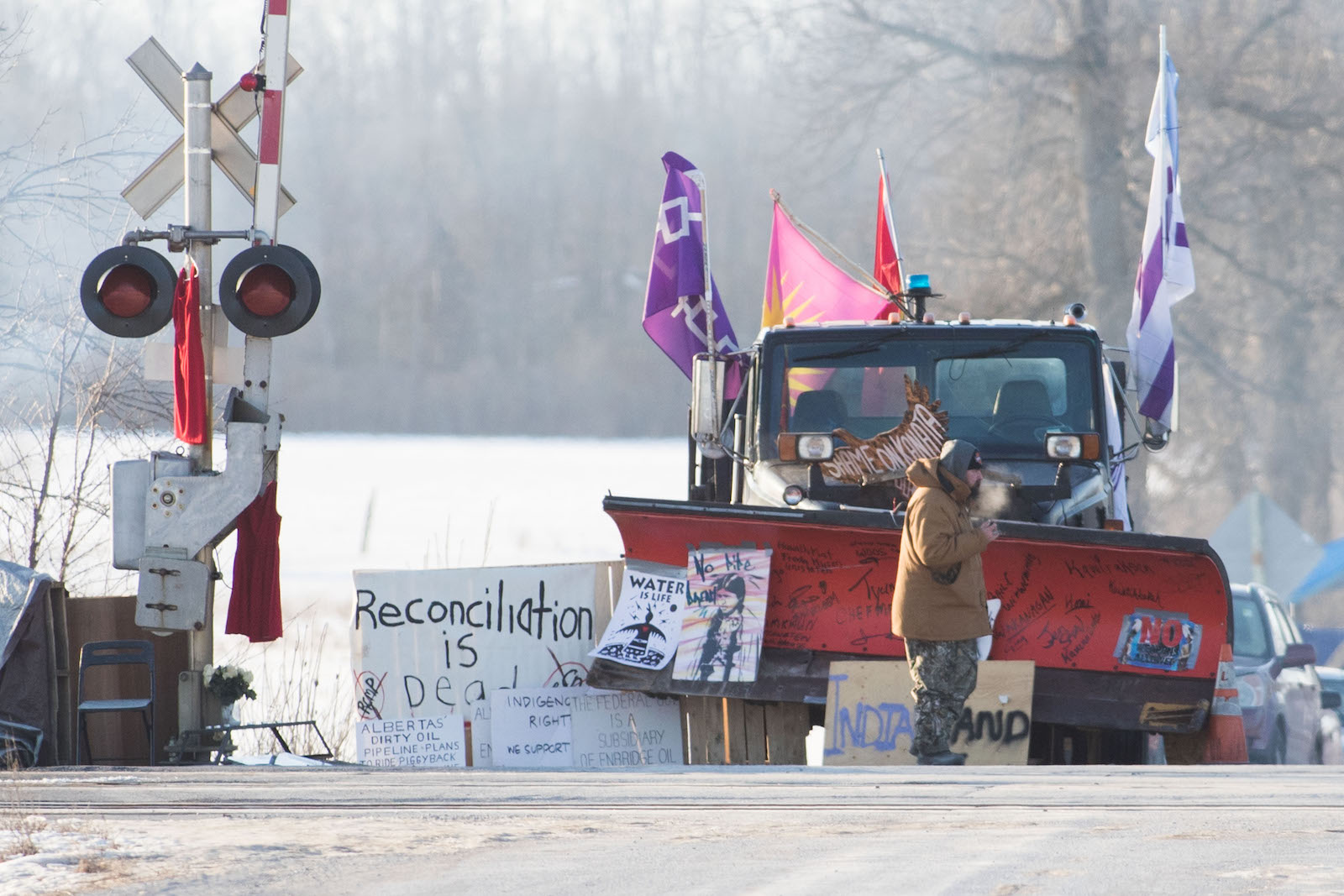On Monday, Gidimt’en land defenders from the Wet’suwet’en First Nation accused Canada of violating international law and requested the United Nations make a field visit to their territory to investigate. Through an official submission to the United Nations Expert Mechanism on the Rights of Indigenous Peoples (EMRIP), they say that Canada continues to violate Wet’suwet’en jurisdiction and the UN Declaration on the Rights of Indigenous Peoples (UNDRIP) by proceeding with the proposed Coastal GasLink pipeline on unceded Wet’suwet’en territory.
The Coastal Gaslink pipeline will transport fracked natural gas across Wet’suwet’en territory in what is also known as British Columbia, to a proposed LNG Canada plant in Kitimat, BC. Since 2009, the Wet’suwet’en have built a number of occupation sites in the area, including cultural camps, healing lodges, and hunting camps to prevent construction and protect their land. The territory, governed by a traditional government led by Wet’suwet’en Hereditary Chiefs, has been recognized by the Supreme Court of Canada.
Over eight pages, the submission describes years of Indigenous resistance and police violence, calling attention to recent Royal Canadian Mounted Police (RCMP) raids of land defender camps, and calls on Canada to withdraw both RCMP and construction workers from Wet’suwet’en territory. “The forced industrialization and police militarization of Wet’suwet’en land is a violation of Canada’s international obligations as outlined in the UN Declaration on the Rights of Indigenous Peoples,” the document reads.
The submission emphasizes that the land was never ceded and the Wet’suwet’en will continue to defend it: “We, the Wet’suwet’en people, have never sold, surrendered, or in any way relinquished our collective title to Wet’suwet’en land. We have continued to exercise our unbroken, unextinguished, and unceded right to govern and occupy our lands.”
The Expert Mechanism, which is under the Office of the High Commissioner for Human Rights, is composed of seven independent experts on the rights of Indigenous Peoples. In 2019, the United Nations Committee on the Elimination of Racial Discrimination (CERD) called on Canada to stop construction on the CGL pipeline and two other projects until they obtained consent from impacted Indigenous nations. The Canadian government has not announced any plans to halt projects. Since 2018, EMRIP has conducted field visits to Mexico, New Zealand, and Finland in response to requests from local Indigenous communities for help implementing UNDRIP. Canada pledged to adopt and implement UNDRIP in 2016.
Despite the Wet’suwet’en’s historical and legal rights, the Canadian government has allowed TC Energy, the owner of the pipeline project, to continue with construction. The Wet’suwet’en have tried several times to evict the company and its workers from their territory. A November 14, 2021 eviction notice was followed by a violent RCMP raid on November 18 and 21. Thirty-two people were arrested during the raid.
The submission was prepared by Wet’suwet’en Hereditary Chief Dinï ze’ Woos (Frank Alec), Gidimt’en Checkpoint Spokesperson and Wing Chief of the Cas Yikh House, Sleydo’ (Molly Wickham), and Gidimt’en Checkpoint Media Coordinator Jen Wickham. It is also formally endorsed by a long list of Indigenous rights activists, environmental groups, and legal organizations including the Union of BC Indian Chiefs, Greenpeace Canada, Indigenous Climate Action, Sierra Club BC, and Amnesty International Canada.



